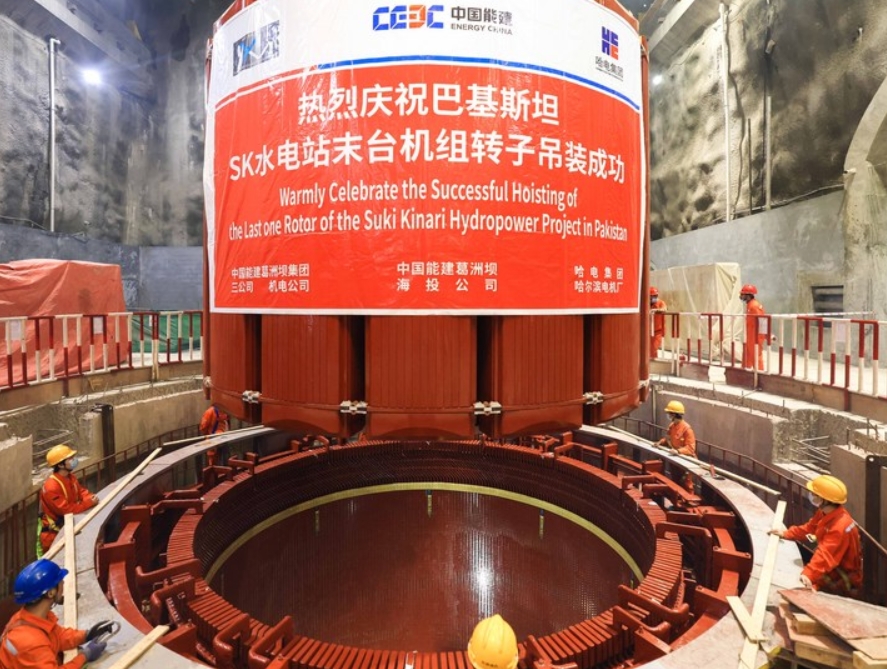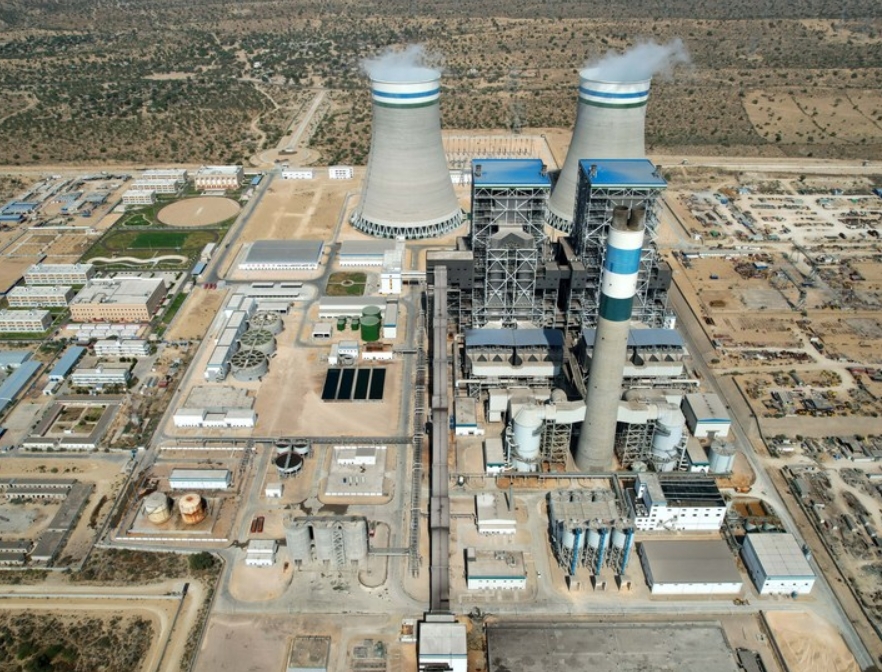CPEC helps advance goals of economic development, regional connectivity, say Pakistani experts

Engineers hoist the last rotor of the Suki Kinari Hydropower project in the Mansehra district of Khyber Pakhtunkhwa province, Pakistan, on June 10, 2023. (China Gezhouba Group Corporation/Handout via Xinhua)
Sohail Mahmood, former foreign secretary of Pakistan and director general of the ISSI, said that CPEC has produced win-win outcomes, achieving remarkable progress over the last 10 years while taking Pakistan-China friendly relations to new heights.
The China-Pakistan Economic Corridor (CPEC) has proved to be a corridor of opportunities for Pakistan, advancing the goals of economic development, regional connectivity, and shared prosperity, said Pakistani experts during a seminar.
CPEC has served to promote bilateral relations between China and Pakistan, regional integration, and overall development, said the experts and academics at the recently held seminar organized by the Institute of Strategic Studies Islamabad (ISSI), an Islamabad-based think tank.
Launched in 2013, CPEC, a flagship project of the China-proposed Belt and Road Initiative (BRI), is a corridor linking Pakistan's southwestern Gwadar port with Kashgar in northwest China's Xinjiang Uygur Autonomous Region, highlighting energy, transport, and industrial cooperation.
Speaking on the occasion, Sohail Mahmood, former foreign secretary of Pakistan and director general of the ISSI, noted that CPEC has produced win-win outcomes, achieving remarkable progress over the last 10 years while taking Pakistan-China friendly relations to new heights.
"The abiding friendship between Pakistan and China and its key attributes of mutual respect, strategic mutual trust, and mutual support on issues of each other's core interest are commendable," Mahmood said.

This aerial photo taken on Feb. 28, 2023 shows the view of the Thar Coal Block-I Coal Electricity Integration project in Sindh province, Pakistan. (Thar Coal Block-I Power Generation Company (Pvt) Limited/Handout via Xinhua)
Highlighting the journey of CPEC from a conceptual framework to a tangible reality, the expert said that CPEC has played a vital role in ensuring Pakistan's energy security, transportation infrastructure improvement, and employment generation.
In the next phase of CPEC, special focus would be laid on agriculture, industry, trade, and science and technology, he said, adding that besides working together on the project, Pakistan and China would also welcome third-party participation in various sectors, stressing that CPEC is aligned with "Pakistan's pivot to geo-economics."
Masood Khalid, former Pakistani ambassador to China, said that CPEC has brought tremendous socio-economic benefits to Pakistan and changed the lives of local people.
Under CPEC, China, with huge investments, has helped in building roads, railways, ports and special economic zones, which reduced travel time and facilitated local businesses, giving impetus to trade and economic growth of the South Asian country, according to him.
Besides that, multiple CPEC projects have enabled Pakistan to overcome the severe energy crisis by adding 8,000 MW of power to the national grid, he said, adding that CPEC has also remained effective in terms of capacity building, technology transfer, and skill development of workers and local companies.
Muhammad Aamir Khan, a senior official at Pakistan's Ministry of Foreign Affairs, said that CPEC is a manifestation of deeply rooted friendship between Pakistan and China.
CPEC has contributed toward building a closer China-Pakistan community with a shared future, he said, adding that Pakistan has a lot to learn from China's development to ensure a more thriving future for its people.
Editor:伏娅敏
